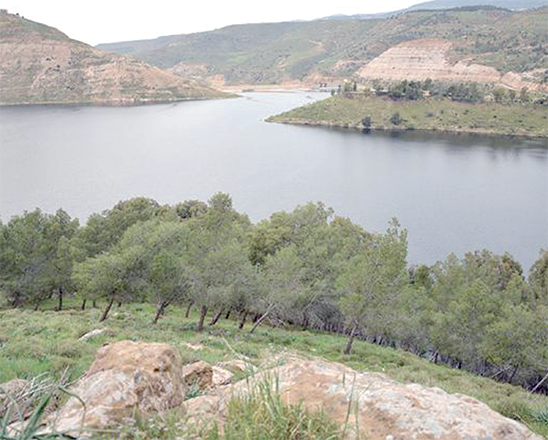AMMAN — With the total capacity of the dams reaching 32 per cent, experts are hopeful for a revitalised agricultural season.
Omar Salameh, the spokesperson for the Ministry of Water and Irrigation, told The Jordan Times that the recent depression brought in 2 million cubic metres of water into the dams.
“This brings the total reservoir capacity of the dams to 92 million cubic metres, Salameh said.
The recent rainfall in the Kingdom has revived farmers’ hopes for a better season. It has significantly increased the reservoir levels in dams compared with previous years, alleviating substantial financial burdens on farmers.
Farmers believe that the recent rains will extend the lifespan of crops, enhance their quantity and quality and reduce costs related to pest control and irrigation.
Adnan Khaddam, president of the Jordan Valley Farmers Union, told The Jordan Times that the rains also increased groundwater reserves.
“This bodes well for a good agricultural season, considering the past concerns and fears among farmers during the summer season due to a shortage of irrigation water,” Khaddam said.
He emphasised that the improved water situation will alleviate farmers’ fears of irrigation shortages, particularly during the summer months when demand increases.
Khaddam noted that the abundant rainfall in the region in recent days will benefit farmers, restoring hope for a good agricultural season that will, in turn, benefit the entire agricultural sector.
Mohammad Rabei, a farmer, told The Jordan Times that this winter has been favourable for farmers so far.
“Rainfall was above the annual average, and we didn’t suffer from frost, yet.”
Rabei added that the recent rainfall holds promise for a good agricultural season as it will replenish dam reserves and groundwater, extending their sustainability for a longer period. He pointed out that the rain will reduce financial burdens on farmers by decreasing irrigation operations and limiting spraying and pest control activities.
“This is particularly significant as rainfall, coupled with a decrease in temperatures, greatly contributes to reducing crop susceptibility to diseases and insect pests,” said Rabei.
Beyond the immediate benefits for farmers, Rabei said that the recent increase in rainfall is also bringing positive environmental impact.
“The increased rainfall will contribute to the replenishment of local ecosystems, fostering improved biodiversity. Moreover, the increased water levels mitigate the risk of wildfires, providing a natural barrier against the potential devastation that dry conditions can bring.”
However, concerns arise about potential challenges that could accompany the increase in water levels.
Mutaz Matar, an agricultural engineer told The Jordan Times that, in light of the increase in rainfall levels, there is an urging need for vigilance against potential flooding and soil erosion, especially in areas where the landscape is susceptible to such issues.
“The excess of water, while beneficial for agriculture, may pose a risk if not managed effectively,” Matar said.
Matar said that effective water management strategies are crucial in addressing such challenges. “Implementing well-thought-out irrigation plans and soil conservation practices can help strike a balance between maximising the advantages of increased rainfall for agriculture and mitigating the risks associated with potential flooding and soil erosion.”
